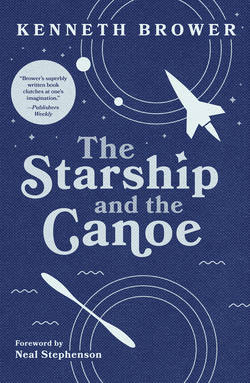Читать книгу The Starship and the Canoe - Kenneth Brower - Страница 12
На сайте Литреса книга снята с продажи.
5 Wunderkind
Оглавление“My repute is that of a good technician, happy with words, but not markedly original,” George Dyson once wrote. Not the George Dyson of the wool cap and the tree house, but his grandfather, Sir George Dyson, director of the Royal College of Music. “I am familiar with modern idioms, but they are outside the vocabulary of what I want to say. I am really what the eighteenth century called a kapellmeister, an untranslated word which means a musician equipped both to compose and produce such music as is needed in his position or environment.”
Sir George Dyson was a gifted, busy, forceful man. In 1923, when he was forty, his only son, Freeman, was born.
If, as is often suggested, music and mathematics arise from a single aptitude, or from two very similar aptitudes, then Freeman inherited that. By the age of six, his great interests were mathematics and astronomy. He was more than a little mathematical kapellmeister, however. He was a wunderkind.
“It is said,” Sir George wrote, “that the mental processes of a mathematical prodigy differ in no essential respect from those of ordinary folks who can handle more modest problems. The prodigy’s gift is the power of incessant concentration on more and more complicated mental calculations, until his brain can instantly recall the end products of the thousands of factors with which his mind has been busy.” Sir George was writing here about genius in music, and he was going to math for analogy. It is not hard to guess which mathematical prodigy had aroused his wonder.
“In Mozart you hear this fantastic intricacy,” says Brian Dunne, one of Freeman Dyson’s colleagues on Project Orion. “You know he has to hold a whole series of things in balance, in order to make it come out right. Freeman has this. He has a wonderful ability to carry his train of thought through fantastic numbers of logical steps.”
If Freeman’s synapses sparked more electric than his father’s, his personality was somewhat less forceful. This is, at any rate, Freeman’s own view of things. Others who know the Dyson history seem to share it. Sir George was the country boy who made good by determination. Freeman, because of the social advantage provided by his father’s success, and because of his own dazzling, force-of-nature gift, never had to develop that determination. Freeman will admit that as a boy he was competitive. He enjoyed doing anything he could do well. He excelled at Latin and history, as well as at math, but he avoided sports, except for distance running—the steeplechase—for which his slender frame was suited. He was mostly an indoorsman. He lived in books.
English schools advanced students according to ability, not age, and Freeman was usually three years or so ahead of his contemporaries. His older classmates did not mind this precociousness, but his age-mates did, and Freeman suffered black eyes from small fists.
“Why?” I asked, when I learned this. “Why did they resent you?”
For a time the physicist was lost for an answer. “Well,” he said at last. “Well, I suppose I was quite unbearable.” He insisted that he likes the English system, in spite of the black eyes. They were a small price for the freedom to grow at his own speed.
“I was lucky,” he has written, “to go through high school and college in England during World War II when there was an acute shortage of paper. In England, oral examinations are not part of the system. No paper, no examinations. So the regular examination routine was disrupted and we were free to get ourselves an education. In my last year of high school I sat in class for a total of seven hours a week. We made good use of our freedom. I learned higher mathematics (and French) from three fat and dusty volumes of Jordan’s Cours d’Analyse which I found in the school library. I often wondered who had had the vision to put these marvelous books into our library. Nobody on the teaching staff ever looked at them. The famous mathematician Hardy had been a boy at the same school forty years earlier, so perhaps he had had something to do with it. He wrote in his book, A Mathematician’s Apology, that his eyes were opened to the beauty of mathematics by reading Jordan’s Cours d’Analyse. How many American high-school libraries have a copy? And how many American high schools would give the children enough time to read it if they had it?
“When I came to Cambridge University in the middle of the war I was again lucky, because the war had swept away all the graduate students. The mathematicians Hardy, Littlewood, Besicovitch gave courses of advanced lectures in a small room with three or four undergraduates sitting around a table. The geophysicist Harold Jeffreys gave his course to an audience of one. Mondays, Wednesdays, and Fridays at nine, I was always there punctually so that he would not begin talking to an empty room. It was a great time to be a student.”
